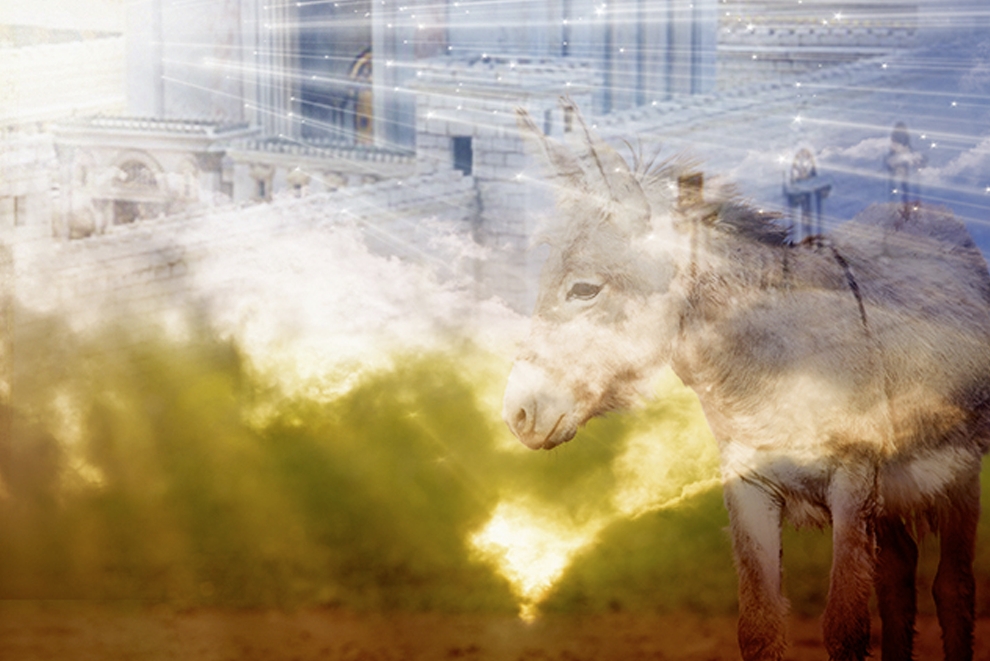End of Days
Awaiting Mashiach: Why Anticipation Is Part of Faith
What Mashiach means, why waiting matters, and how yearning strengthens us
 (Illustration: Hidabroot / Photo: Shutterstock)
(Illustration: Hidabroot / Photo: Shutterstock)The Thirteen Principles of Faith complied by the Rambam, includes the principle to believe with perfect faith in the coming of Mashiach, and continues: “Even though he may delay, nevertheless I will await him every day that he will come.”
As Maimonides rules in Laws of Kings, ch. 11: “The king Mashiach is destined to arise and restore the kingdom of David to its former sovereignty. He will build the Temple and gather the dispersed of Israel. In his days all the laws will return as they were before: they will offer sacrifices, observe Sabbatical and Jubilee years, in accordance with all their commandments stated in the Torah.
And anyone who does not believe in him, or does not await his coming, is not only denying the words of the prophets but the Torah and Moses our teacher, for the Torah testified about him, as it is said: ‘Then the Lord your God will restore your fortunes and have compassion on you; He will return and gather you… even if your outcasts are at the ends of the heavens… the Lord will bring you back’ (Devarim.).
Why is “Awaiting” So Central?
A person who doesn’t believe in Mashiach denies explicit Torah passages, but why is a lack of longing for his coming also a denial of Torah?
Consider a person who “has it all”: a learned individual and a respected community figure, who has seen generations of upright descendants, enjoys wealth, donates a fifth of income to charity and Torah, and lives a life of mitzvot. If such a person isn’t actively awaiting Mashiach, why call that a denial of the Torah? He keeps commandments and does acts of kindness, so why is he considered to be denying the whole Torah?
What the Messianic Redemption Actually Means
When Mashiach arrives and redeems us, we and all creation reach the perfect realization of “to repair the world under the Kingdom of the Almighty.” Then the verses will be fulfilled: “The earth will be filled with knowledge of God,”“I will remove the spirit of impurity from the earth,” and “The Lord alone will be exalted on that day.”
Free Will in the Messianic Era
The Ramban (Nachmanides) on Parshat Nitzavim, in the section of teshuvah comments on the verses: “When all these things come upon you… and you return to the Lord your God… then the Lord your God will restore your fortunes and have compassion on you, and He will gather you”: “From the time of Creation, a person had the option to act as he wished — righteous or wicked. The entire period of the Torah is thus, so that merit be granted for choosing good and punishment for choosing evil. In the days of Mashiach however, choosing good will become their nature. The heart will not desire anything improper nor want it at all… and the human being will return then to what he was before Adam’s sin.”
Teshuvah Leads to Immediate Redemption
Maimonides writes in Laws of Repentance, ch. 7: “The Torah has already promised that Israel will do teshuvah at the end of their exile, and immediately they will be redeemed, as it says, ‘When all these things come upon you… and you return to the Lord your God… then the Lord your God will return [with] your captivity…’”
This is the purpose for which God created the entire world.

Waiting Is Part of Faith Itself
Today we live in a world that is clouded by falsehood and pollution — where everything seems exalted except the Name of God; a world heavy with troubles, materially and spiritually. This world is a corridor, a foyer on the way to the true destination of rest and inheritance.
Yearning for Mashiach and for salvation is therefore an essential part of faith itself. A Jew who believes that God is the Creator — and that He made this world and us for a higher purpose, cannot be content with the status quo. If someone is satisfied with today’s corrupted, diminished reality, then some core faith is missing. Basic faith demands that we understand we are now in a passageway toward “repairing the world under God’s kingship.”
We echo this in every Amidah (the daily standing prayer):
“Speedily cause the shoot of David Your servant to flourish, and exalt his horn through Your salvation, for we have hoped for Your salvation all day and are awaiting deliverance.”
The Power of Yearning: Why Anticipation Itself Strengthens Us
When we voice our longing for something better, that longing strengthens us and gives us the inner power to endure life’s trials. Yearning is a kind of bond that holds together what is distant. In everyday life, when two close people are apart, their longing sustains and fuels their connection.
Throughout the year we plead:
“Our Father, our King, reveal the glory of Your kingship upon us speedily. Appear and be exalted over us soon in the sight of all living.”
“Bring us with joy to Your city Zion and with everlasting happiness to Jerusalem Your Holy Temple. There we will perform before You the offerings we owe.”
A Life Check: “Did You Await Salvation?”
One of the questions a person is asked in judgment is, “Did you anticipate salvation?” Did you long for the Shechinah (Divine Presence) to rise from exile? Did you truly believe and understand that Mashiach is necessary?
We must strengthen our faith and begin genuinely awaiting the redemption. May the Holy One, blessed be He, soon fulfill in us: “The Lord will wipe away the tear from every face.” May we merit to participate in welcoming our Mashiach speedily in our days, amen.

